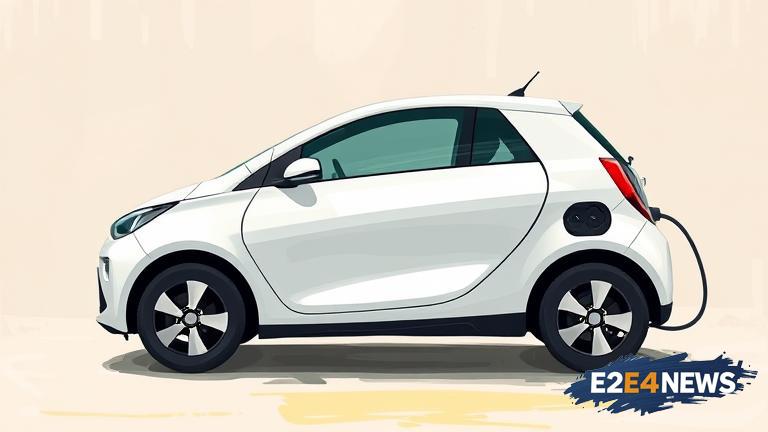The Indian government has announced a comprehensive plan to promote the adoption of electric vehicles (EVs) in the country. The plan includes a range of incentives and initiatives to encourage the use of EVs, including tax exemptions, subsidies, and investment in charging infrastructure. The government aims to have at least 30% of new vehicle sales be electric by 2030. To achieve this goal, the government will provide subsidies to manufacturers to encourage the production of EVs. Additionally, the government will invest in the development of charging infrastructure, including the installation of charging stations along highways and in cities. The plan also includes measures to promote the use of EVs in public transportation, such as buses and taxis. The government will provide incentives to state governments to adopt EVs for public transportation. The plan is expected to have a significant impact on the environment, as EVs produce zero emissions and can help reduce air pollution in cities. The government has also announced plans to develop a network of charging stations along highways, which will make it easier for people to own and use EVs. The plan is part of the government’s larger goal to reduce the country’s dependence on fossil fuels and promote the use of renewable energy. The government has set a target of generating 40% of the country’s electricity from non-fossil fuels by 2030. The plan to promote EVs is also expected to create new job opportunities in the manufacturing and service sectors. The government will provide training and support to workers in the automotive industry to help them adapt to the new technology. The plan is also expected to attract foreign investment in the EV sector, which will help to boost the country’s economy. The government has announced that it will provide subsidies to companies that invest in the development of EV technology. The plan is a significant step forward in the government’s efforts to promote the use of clean energy and reduce the country’s carbon footprint. The government has also announced plans to develop a national grid for EV charging, which will make it easier for people to charge their vehicles on the go. The plan is expected to have a significant impact on the country’s transportation sector, which is currently dominated by fossil fuel-powered vehicles. The government has set a target of having at least 50% of new bus sales be electric by 2025. The plan is also expected to promote the use of EVs in the logistics and transportation sector, which will help to reduce emissions and improve air quality. The government will provide incentives to companies that adopt EVs for their fleets. The plan is a significant step forward in the government’s efforts to promote sustainable development and reduce the country’s environmental impact. The government has announced that it will review the plan regularly and make adjustments as needed to ensure that it is meeting its goals. The plan is expected to have a significant impact on the country’s economy and environment, and is a major step forward in the government’s efforts to promote the use of clean energy and reduce the country’s carbon footprint.
